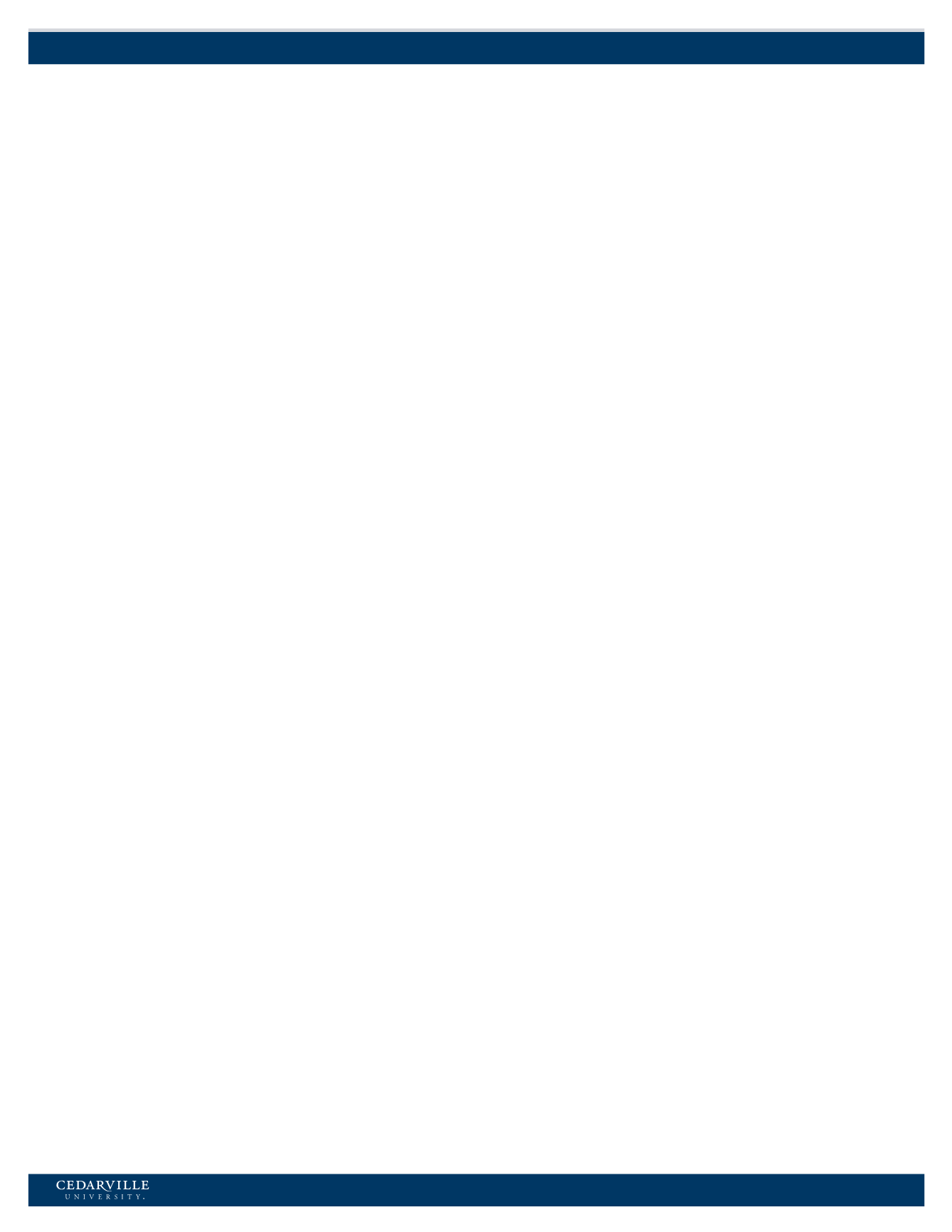
Page
54
2014–15 Graduate and Adult Programs Academic Catalog
Graduate-Level Course Descriptions
PHAR-6122 – PHAR-6211
PHAR-6122 Pharmacy Practice Lab II
1 hour
This course will focus on understanding concepts and
developing skills fundamental to the practice of pharmacy,
including methods of sterile and non-sterile medication
preparation (e.g., reconstitution of oral powders for suspension,
compounding of topical creams and ointments, encapsulation
of dry powders), pharmacy calculations, and regulations and
standards related to medication preparation. It will also introduce
students to the medication use process; including medication
procurement, inventory management, medication storage and
security, and prescription transmission/receipt, interpretation,
evaluation, fulfillment (including product selection, apportioning,
packaging and labeling), dispensing, and record keeping.
The students will learn to navigate computerized prescription
processing systems, prescription benefits management systems,
patient-based drug information systems, electronic medical
records, and point-of-sale systems. Health literacy and cultural
competency will be practiced and the student will be introduced to
patient counseling and assessment skills. They will also practice
communication with other health-care providers. Prerequisites:
good standing in the P1 year in the School of Pharmacy; PHAR-
6121 Pharmacy Practice Lab I.
PHAR-6130 Medicinal Biochemistry
4 hours
This course will address the chemical and physical properties of
the biological macromolecules including proteins, carbohydrates,
lipids, and nucleic acids. Additionally, the metabolic pathways,
enzyme kinetics, and thermodynamics associated with these
molecules will be discussed. The student will apply these
biochemical principles to maintenance of health as well as to
the pharmacological management of disease. Prerequisites:
admission into the Pharm.D. program
PHAR-6131 Pharmaceutical Sciences I
5 hours
The major focus of this course is to introduce biophysical
principles that are foundational for evaluating different
pharmaceutical systems. This course will emphasize development
of thermodynamic concepts that explains the equilibrium
phenomena in different buffers, ionic solutions, and complex
formation in various pharmaceutical dosage forms. Further,
non-homogenous pharmaceutical systems and the problems
involving interfacial phenomena and the stability of pharmaceutical
dosage forms will also be studied. Prerequisite: admission into the
Pharm.D. program.
PHAR-6132 Pharmaceutical Sciences II
5 hours
This course will lay the foundation for understanding the
medicinal chemistry and pharmacological principles that govern
the pharmacodynamics and pharmacotherapeutics of the various
classes of drugs. Prerequisites: good standing in the P1 year in
the School of Pharmacy; PHAR-6130 Medicinal Biochemistry;
PHAR-6131 Pharmaceutical Sciences I.
PHAR-6133 Genetics and Pharmacogenomics
3 hours
This course introduces the basics of genetics followed by
disease-specific applications of pharmacogenomics to provide an
insight in to the future of clinical pharmacy practice. Using case
studies, class discussion and a scholarly paper, students will
apply genetic and pharmacogenomics principles to the practice of
pharmacy. Prerequisite: admission into the Pharm.D. program.
PHAR-6134
4 hours
Pharmacokinetics and Biopharmaceutics
This course will lay the foundation for understanding the kinetic
phenomena that helps to quantify and integrate the journey
of drugs in the body. In addition, this course also shows the
practical applications of pharmacokinetics and biopharmaceutics
in providing a rational approach to patient care by establishing,
optimizing and individualizing dosage regimen of different drugs
in a clinical setting. Prerequisites: Good standing in P1 year in the
School of Pharmacy; PHAR-6130 Medicinal Biochemistry; PHAR-
6131 Pharmaceutical Sciences I.
PHAR-6150 Drug Information and Informatics
3 hour
A primary focus of this course is the development of skills
related to the retrieval, analysis and communication/dissemination
of drug-related information. Further, this course will investigate the
manner in which such information is integrated into automated
data processing systems—including the benefits, risks, and
constraints of such integration. Prerequisites:P1 year in good
standing in the School of Pharmacy; PHAR-6110 Introduction to
Pharmacy Practice; PHAR-6121 Pharmacy Practice Lab I.
PHAR-6171
1 hour
Introductory Pharmacy Practice Experience I
Introductory Pharmacy Practice Experiences (IPPE-I) in the
first year of the professional curriculum is designed to provide
opportunities for students to practice technical pharmacy skills in
community settings. Students in IPPE-I will meet with an assigned
preceptor for five-hour periods through the semester, totaling
50 contact hours. Students will demonstrate core practice skills:
communication, calculations, ethics, medication safety, managing
resources, wellness, health promotion, technology, informatics,
and critical thinking. Prerequisite: entrance into the professional
curriculum.
PHAR-6172
1 hour
Introductory Pharmacy Practice Experience II
Introductory Pharmacy Practice Experiences (IPPE-II) in the
first year of the professional curriculum is designed to provide
opportunities for students to practice technical pharmacy skills in
community settings. Students in IPPE-II will meet with an assigned
preceptor for five hour periods throughout the semester, totaling
52 contact hours. Students will demonstrate core practice skills:
communication, calculations, ethics, medication safety, managing
resources, wellness, health promotion, technology, informatics,
and critical thinking. Prerequisite: entrance into the professional
curriculum.
PHAR-6210
2 hours
Cross-Cultural Care and Communication
This course utilizes a cross-cultural framework to communicate
principles of healthy living and provide patient care to different
people groups. The course emphasizes the application of biblical
basis for missions in providing patient care across different
cultures with a genuine respect for the specific culture involved.
In addition, this course introduces the design, implementation,
and evaluation of health communication programs. Prerequisites:
good standing in P1 year in the School of Pharmacy; PHAR-
6130 Medicinal Biochemistry; PHAR-6131 Pharmaceutical
Sciences I; PHAR-6132 Pharmaceutical Sciences II; PHAR-6134
Pharmacokinetics and Biopharmaceutics.
PHAR-6211 Medication Therapy Management
2 hours
This course will provide the student with an in-depth, working
knowledge of Medicare Part D, with an emphasis on Medication
Therapy Management (MTM) Services. Through self-study
modules, case studies, and hands-on patient interview and
assessment practice sessions, students will strengthen existing
skills needed to develop and implement MTM services in
community pharmacies. Prerequisites: good standing in P2 or P3
year in the School of Pharmacy. (odd years)


